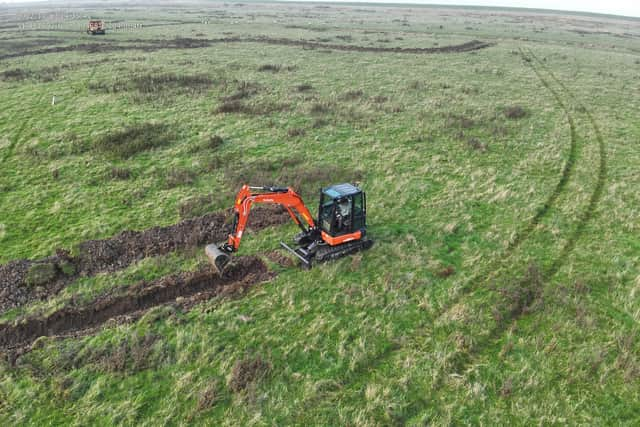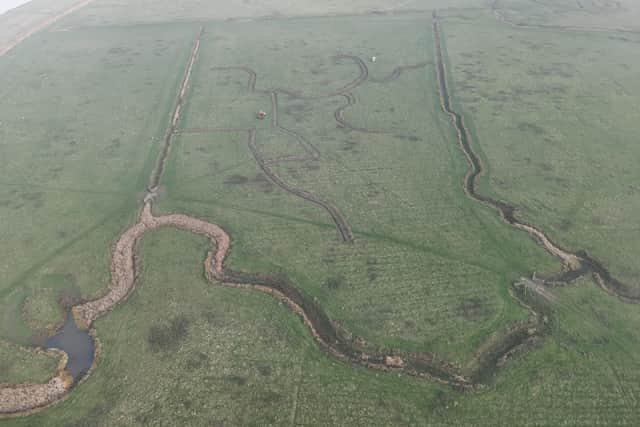WATCH: Drought inspires farmer to create habitat supporting nearby wildlife reserves
and live on Freeview channel 276
In response to a changing climate, a Kentish farmer has set about creating 80 hectares of valuable new wetland habitat on his property which, upon completion, will deliver significant conservation benefits across the wider Thames Estuary and Marshes.
As a wetland of international importance, the Thames Estuary and Marshes Special Protection Area (SPA) comprises a mosaic of habitats offering wintering and breeding grounds for important wetland bird species.
Advertisement
Advertisement
With evidence suggesting that this habitat is threatened by water supply issues and species disturbance through public access, local farmer Alex Bates decided to help conserve this unique habitat. Working with the conservation charity RSPB and local ecological consultants Ecological Planning and Research (EPR), Alex is restoring lowland wet grassland on his property.


Where once there was dry, parched land, the new wetland will retain winter rainfall to ensure water levels remain higher into the spring and summer. As well as directly benefiting breeding wading birds and other wildlife, Bates’ Wetland will contribute to conservation action in nearby nature reserves, providing a safe site, free from public disturbance.
The nature conservation work undertaken focuses on the one principle of slowing water flow, holding back water, and improving natural floodplains in heavily drained landscapes by using natural materials placed in strategic locations to create perched wetland systems.
It is hoped that this increased water retention will create breeding habitat for lapwing, redshank, avocet, and other breeding waders. It will also increase invertebrate abundance and diversity, with benefits for the entire ecosystem.
Advertisement
Advertisement
Action by private landowners, such as Alex, provides an “exciting example” of what positive contributions individuals can make, especially when working in tandem with private and public organisations across entire landscapes.


Alex explained: “Given the impacts of the recent summer on our natural environments, it’s very important that we have biodiversity hotspots not just in protected areas but also on private land as well.
“I’m proud to be making a difference with Cliffe and Cooling Farm wetlands and the teams at EPR and RSPB have been incredibly supportive in my journey to date.”
Julian Nash, Senior Site Manager at RSPB, added: “The UK is one of the most nature-depleted countries in the world, and nature-friendly farming has a vital role to play in tackling the biodiversity and climate crisis. It’s fantastic to see local farmers like Alex use their land to make a difference to nature’s recovery.
Advertisement
Advertisement
“By working in partnership with landowners such as Alex and with help from forward thinking businesses such as EPR we are able to demonstrate that we don’t have to settle for either commercial farming or restoring nature but can showcase how the two can work in tandem, with farms able to improve connectedness of conservation sites and help wildlife thrive once more.”